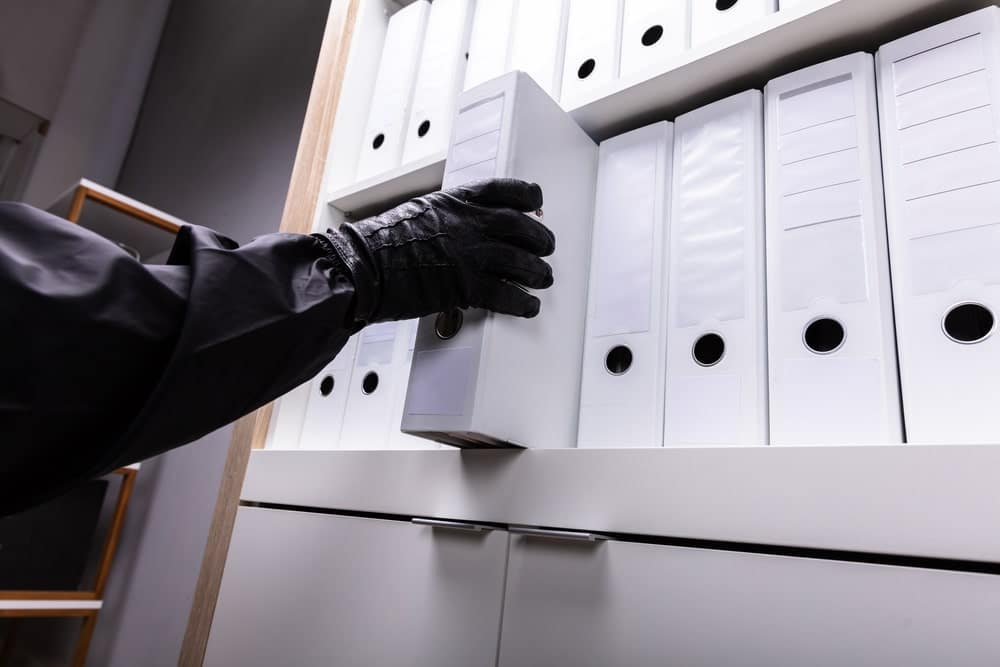Pretty much everyone has a fairly good idea of what theft is. It’s taking something that isn’t yours.
However, there are lots of different ways that this can happen, from pocketing a stick of gum at the convenience store on Main Street, to embezzling millions of dollars of investments on Wall Street.
You say that one is far worse than the other, or that it sure doesn’t seem like it’s illegal to steal, if you’re the Wall Street broker. Both of these issues bring up the fact that theft is surprisingly complex.
According to the laws in Maine, theft is “obtaining or exercising unauthorized control over the property of another with intent to deprive the other person of the property.”
While this seems like the legalese way of saying what everyone already knew about theft, the vague words used in Maine’s laws open lots of doors, and makes a lot of things fit into the broad category of “theft.”
Out of the numerous ways that theft can happen, theft by unlawful taking or transfer is the most basic.
This is what was formerly known in Maine as larceny, or embezzlement. It’s a kind of “catch-all” type of theft that includes acts that don’t seem to fit in more specific forms of the crime, like petty theft and shoplifting.
Call 207-571-8146 or contact us online to schedule a consult with one of our highly skilled criminal defense & OUI, DUI, DWI lawyers, serving Maine, today.
Table of Contents
Penalties for Theft By Unauthorized Taking
The criminal penalties for convictions for theft by unlawful taking or transfer depend on the value of the property that was stolen.
| Class of Crime | Value of Property | Jail Time | Fines | Statute | |
| Class E | Misdemeanor | Under $500 | Up to 6 months | Up to $1,000 | 17A §353(1)(A) |
| Class D | Misdemeanor | $500 – $1,000 | Up to 1 year | Up to $2,000 | 17A §353(1)(B)(5) |
| Class C | Felony | $1,000 – $10,000 | Up to 5 years | Up to $5,000 | 17A §353(1)(B)(4) |
| Class B | Felony | Over $10,000 | Up to 10 years | Up to $20,000 | 17A §353(1)(B)(1)-(3) |
Of course, this raises an interesting point on the “value” of what was stolen. The basic rule that Maine uses to determine the value of a stolen item is to look at its market value. This is how much that item would sell for.
This prevents someone from claiming that the “I Love NYC” bracelet that they lost was some “family heirloom” that is “priceless, or at least worth millions.” If the market value of the stolen property is $5, then the law sees it as worth $5.
As you can see, the range of penalties varies widely, and is all based on the value of the property stolen. At one end of the scale is petty theft – which covers property valued under $500.
Most theft crimes fall at or near this end of the spectrum. At the other end are felony theft crimes, where the property was worth more than $10,000.
Unfortunately, these aren’t the only penalties that you can face, if you are convicted for theft by unlawful taking or transfer. Because it’s a property crime, you could also face civil charges by the property’s owner, as they try to sue you for the retail value of the goods.
In addition to the price of the property, they can also go after you for a civil penalty of three times the retail value, up to $500.
The penalties also increase if the charge is for petty crime, but you’ve had two or more theft-related convictions in the past, either in Maine, or elsewhere.
Additionally, if the property stolen was a gun or an explosive, or if a gun was used in the theft, then it automatically becomes a felony-level offense, regardless of the value of the property taken.
Call 207-571-8146 or contact us online to schedule a consult with one of our highly skilled criminal defense & OUI, DUI, DWI lawyers, serving Maine, today.
Defense Against Theft By Unauthorized Taking in Maine
Regardless of how innocent you may seem, hiring a solid, experienced criminal defense attorney can easily be the best thing you can do, once you’ve been charged with theft by unlawful taking or transfer.
Criminal defense attorneys, such as William T. Bly, have extensive experience and training and will work to achieve the best case scenario.
While this may seem easy to some, in reality very few people are aware of what, exactly, the prosecutor has to prove during trial. Mr. Bly’s thorough understanding of criminal law has given him a nuanced knowledge of precisely what the prosecutor needs to show a judge and jury.
This allows him to look at the prosecutor’s case, and pick apart its weakest elements until a conviction is impossible.
Here are just a few of the ways that Mr. Bly has successfully fought a case in trial:
Factual Issues
Who actually took the property? If they say that it was you, how do they know that? Are there other people who also wanted it? Maybe it was actually them. If it clearly was you, did you intend to return it?
Did you think it lawfully belonged to you? These might all seem like simple, basic questions that law enforcement and the prosecution team should have the answers to, but it often comes to light that they don’t.
Even if they think they do, they still have to prove it in court, and have to show that they have the right facts beyond a reasonable doubt.
Evidentiary Issues
Oftentimes, court cases come down to one, single, piece of evidence. This can be a fingerprint that one side can’t explain, a witness that saw it all, or a confession during a police interrogation. These pieces of evidence look formidable. But smart criminal defense attorneys know how to tackle them, and experienced defense lawyers have done it countless times in the past. Mr. Bly has both the knowledge to understand exactly how to impeach a witness to show that they’re lying, and has the experience to see all the signs that say the police coerced a confession to make it involuntary and worthless.
Contact a Theft By Unauthorized Taking or Transfer Lawyer in Maine
Past clients agree that criminal defense attorney William T. Bly is one of the best in the state of Maine. William Bly has a track record to prove it. Call The Maine Criminal Defense Group if you’ve been charged with theft by unauthorized taking or transfer (207) 571-8146 contact us online directly.
Call 207-571-8146 or contact us online to schedule a consult with one of our highly skilled criminal defense & OUI, DUI, DWI lawyers, serving Maine, today.
Blog Posts

Today’s topic of discussion concerns the crime of theft of services. Now let’s take, for example, you go to your local auto mechanic. He fixes your car. You don’t like[...]

When most people think of “white collar” crime, they tend to think of the numerous high profile examples, such as the Enron scandal, or the insider trading scandal involving Martha[...]

Theft comes in many different forms, but every specific form shares the same general characteristic: the thief acts with an underlying intent to take property from its rightful owner. The[...]

You might think of robbery, theft, and burglary as near-identical crimes. Those offenses may result in a similar outcome for the victim – loss of property or assets – but[...]

An increase in shoplifting offenses in Chicago has many business owners pointing fingers at the district attorney there, who had changed her office’s policy to reduce the number of felony-level[...]

A Maine native was recently arrested for shoplifting in New Jersey. The details of his arrest highlight an important issue with Maine’s shoplifting law: even empty accusations of shoplifting can[...]

Over $100,000 in merchandise was taken from a jewelry store in Farmingdale back in early August. The incident highlights the difference between shoplifting and some more severe criminal charges like[...]

The recent mass shooting in El Paso has boiled over into a larger discussion of the strain that Walmart stores put on their local communities, particularly local police departments. With[...]

A general overview of the crime statistics in Maine paints an interesting picture of law enforcement throughout the state. A key takeaway of those statistics, though, is that shoplifting is[...]

A report of shoplifting has snowballed into far more severe criminal allegations for a teenager in Aroostook County. Now he is being charged with drug possession and other offenses related[...]
